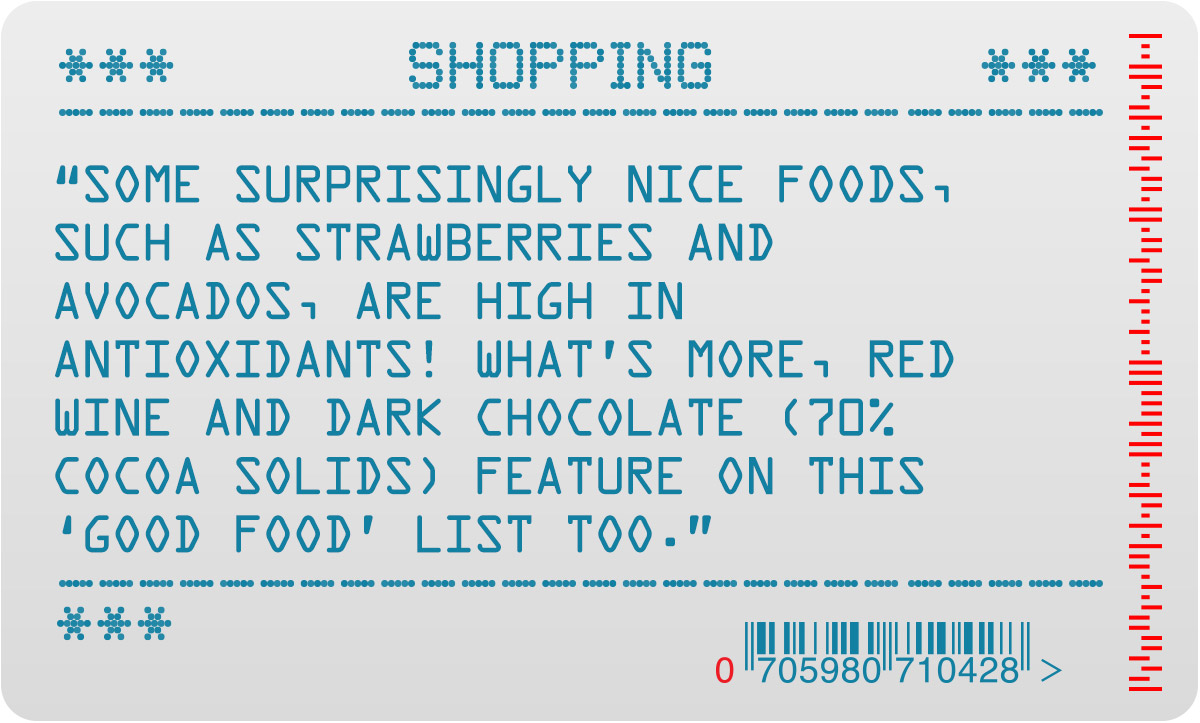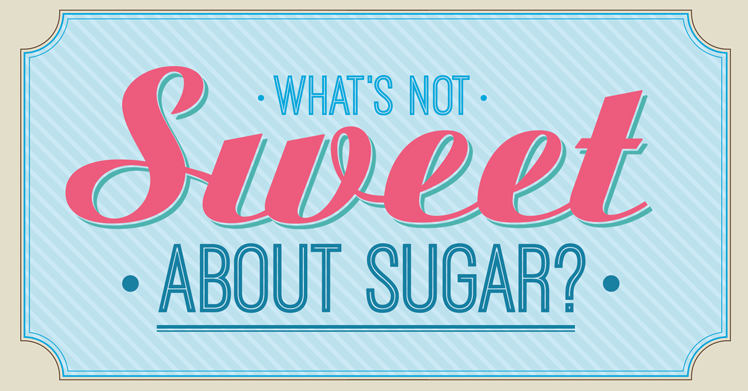I have a confession. I secretly spy on people in the supermarket and watch what they are putting in their shopping trolleys. I think I have shopping trolley envy. Last week, I watched a woman pile pizzas, ready meals, packets of biscuits and jars of pasta sauce into her trolley, with not a care in the world. I began to realise my envy is based on the fact that some people don’t seem to worry about what they eat.
I shop for three of us; one vegetarian, one pescatarian and one devoted carnivore. Throw into the mix strong opinions on locally grown organic fruit and veg, sustainably sourced fish plus free-range chicken and eggs and you’ll understand why I’m losing the will to live by aisle three!
Lately, I have had good reason to question my thoughts on food and good nutrition. I have been researching some of the evidence behind the recommendations that we cut down sugars in our diet. This is not just the white stuff, loaded into just about every product, sweet and savoury, by unscrupulous food manufacturers, but even the naturally occurring sugars we find in otherwise good wholesome foods.
Like everyone else, I don’t like being told what to do by Government officials, but this subject prickles at my core values far too much to ignore. Sugar has always been a big issue for me. As a dental hygienist, I have seen far too many tiny tots come into the dental surgery with their teeth destroyed.
So, what’s changed?
Well, there is now strong evidence that sugars contribute to inflammation. Carbohydrates give us a blood sugar spike shortly after eating which in turn can contribute to something scientists now call ‘meal-induced inflammation.’
What is inflammation and why is this a concern?
Inflammation is part of the human body’s defence mechanism and so is generally a good thing. However, chronic inflammation is the low-grade destructive mechanism that contributes to conditions such as gum disease, arthritis and atherosclerosis.
Lets take gum disease as an example. This affects 43% of the adult population in the UK, so is not an uncommon condition. For years, dental clinicians have known that this is caused by bacterial plaque being left on the teeth and under the gums. They have worked with patients to help improve their efficiency with toothbrushes and interdental brushes. However, other factors have been playing a role in the background.
Studies now clearly show a diet high in carbohydrates can significantly increase the inflammation in our gums, these include:
- Pasta
- Bread
- Rice
- Fruit
- Potatoes
- Saturated fats.
The good news, however, is that a diet high in antioxidants and various micronutrients can reduce this inflammation significantly.
How can antioxidants help?
Antioxidants are a clever way of reducing this unwanted inflammatory reaction. Some surprisingly nice foods such as strawberries and avocados are high in antioxidants! What’s more, red wine and dark chocolate (70% cocoa solids) feature on this ‘good food’ list too.

Another trick I have discovered is to eat food that slows down the absorption of carbohydrates so that the blood sugar spike after a meal is reduced. The foods that are known to do this include:
- Olive oil
- Nut oils
- Fish oils.
These also contain many of the other valuable micronutrients that can be classed as anti-inflammatory.
For example, Omega 3 polyunsaturated fatty acid has long been know as a super food because of its anti-inflammatory properties. Incidentally, nut oils are best used as salad dressings as heat can alter their structure to such an extent their health benefits disappear.
Vegetarian diets are often perceived as a healthy diet but in my experience as the Mum of a teenage vegetarian, it’s really important that this ‘healthier’ diet doesn’t become one of mainly cheese pizza and macaroni cheese!
Replacing meat because of its saturated fat content with cheese is counterproductive. Vegetarian diets should not only focus on protein replacement but getting the full range of nutrients from all the food groups. I can’t honestly say which one of us has the healthier diet at home.
Eating meat, fish or Quorn seems to be secondary to getting a good variety of antioxidants and micronutrients, although for the pescatarian (me) eating the oily fish has an advantage in getting not only antioxidants, but essential micronutrients, but then I would say that, wouldn’t I?
So, back to the lady with the carefree attitude to shopping. Maybe there are some things in her trolley that could be duplicated in mine. Just as long as the bulk of the space is taken up with some of the following:

- Broccoli
- Avocados
- Kiwis
- Strawberries
- Spinach
- Blueberries
- Kidney beans
- Pinto beans
- Blackberries
- Cherries
- Artichokes
- Cranberries
- Plums
- Pecans
- Apples
- Red peppers
- Salmon
- Tuna
- Sardines
- Red onions
- Tomatoes
- Walnut oil
- Olive oil
- Oranges
- Garlic
- Raspberries.
Tempting as it is, filling my trolley with dark chocolate and red wine won’t make my trolley a healthy one; but a little corner can now be reserved for a nice bottle of red wine, some dark chocolate and the odd pizza without having to do the walk of shame to the till.
[mc4wp_form]
